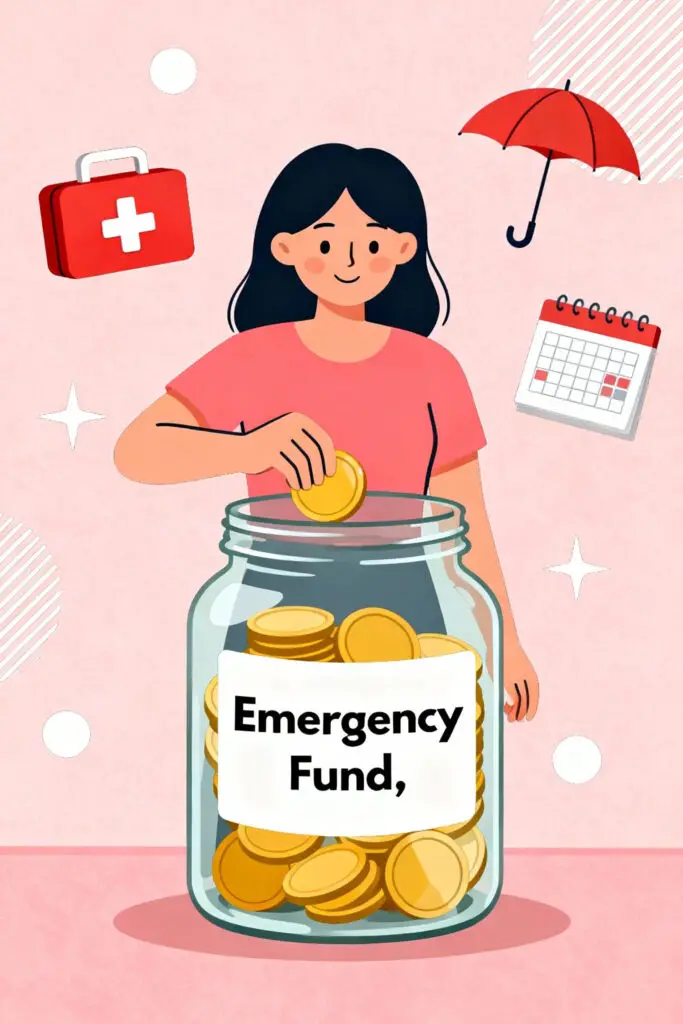Budgeting is less about restriction or holding back on things you enjoy, it’s more about being mindful and intentional where your hard-earned money goes, making it work for you and controlling it rather than letting it control you. Whether you’re trying to pay off a debt, build an emergency fund, or simply want to stop living paycheck to paycheck, budgeting can help you create a plan that gives your money purpose and direction. This article will help you explore the basics of budgeting, allowing you to understand where your money goes and how to make every dollar you earn work for you, not against you.
Why Budgeting Matters
Many people tend to avoid budgeting because it may sound restrictive, intimidating, or overwhelming, but the truth is that budgeting is a tool that makes your financial life easier to deal with. When you know where exactly your money goes every month, budgeting helps you stop living in uncertainty, prevents overspending, helps you avoid impulse purchasing , and eventually allows you to make mindful decisions when it comes to the money you work so hard for.
Budgeting makes all the difference between controlling your money and letting it control you, and this shift is all that brings both confidence and peace of mind in the long run.
Understanding Your Income
Your budget starts with understanding your income and calculating how much money is coming in every month. Whether it’s your salary, freelance gigs, side hustles, or other sources of income, it is important to give yourself a figure instead of relying on guess work.
Once you have a total, calculate your net income, which is after all the taxes and deductions and is your take home pay. Having a clear number can help you plan your spending and expenses accordingly instead of relying on credit cards to fill the gaps. While this step may seem simple, it is crucial to give your finances a solid foundation to begin with.
Tracking Your Expenses

The next step is to track your expenses and stay aware of your spending habits. Track your expenses for at least one month and explore your spending pattern. Whether it’s those midnight snacks, coffee runs, groceries, or gas, tracking your expenses can help you see those underlying unhealthy spending habits that put your entire budget off track.
Being in the clear with your spending habits can help you take action, getting an honest picture of your habits so you can make smarter financial choices in the future. You can track your expenses through budgeting apps, by creating a spreadsheet, or by using something as simple as a notebook.
Categorizing Your Spending
Once you’ve tracked your expenses, organize them into categories like housing, utilities, groceries, transportations, or entertainment. Categorizing your spending can help you see the bigger picture, helping you identify areas where adjustments are needed. For example, you may come to realize that those streaming subscriptions or those random online shopping sprees cost you way more than you thought.
Categorizing helps you simplify your budget, making it easier to find the right balance between needs and wants.
Setting Realistic Financial Goals
A budget becomes more meaningful and easier to follow when there’s a goal associated with it. Whether you’re planning for a big future goal, trying to save up for an emergency fund, or simply want to manage money more effectively, having a specific, clear, and realistic goal can add a personalized touch to the whole process, making it easy for you to stay consistent and committed with the process.
These goals can keep you motivated and help you stay focused when temptations to spend or the impulse to purchase something hits you out of nowhere. It is essential to remember that specific goals are easier to achieve and more satisfying to reach rather than undefined and unclear goals.
Choosing a Budgeting Method
The next step is to choose a budgeting method that fits you, your income, and lifestyle the best. You can consider the 50/30/20 rule where 50% of your income goes to your needs, 30% to your wants, and 20% to savings or debt repayments, if there are any.
You consider the envelope method as well which includes creating different spending categories and assigning cash to each category. The catch of this method is to stay within the spending limit and once you run out of cash placed inside those envelopes, that’s your cue to stop spending on that specific category. Lastly, you can also go with zero-based budgeting method which is all about assigning a purpose to every dollar until there’s nothing left behind.
Prioritizing Needs vs. Wants
One of the most important parts of budgeting is learning the difference between your needs and your wants, because this simple step can completely change how you manage your money. Needs are the things you can’t live without like rent, groceries, electricity, and transport, while wants are the extras that make life more fun, such as going out for dinner, shopping for new clothes, or buying the latest gadgets.
The goal isn’t to cut out every little thing you enjoy, but to spend wisely so that your wants don’t get in the way of your real priorities. When you learn to give your needs the first place in your budget and allow space for your wants only after covering your essentials, you start to feel more in control of your money without feeling restricted.
Building an Emergency Fund

Life doesn’t always go according to plan, and that’s why an emergency fund is one of the most important parts of any strong budget. Whether it’s a sudden car problem, a health emergency, or an unexpected job change, having some money saved can help you stay calm and avoid going into debt. It’s okay to start small, even saving a little bit from each paycheck can make a difference over time because the goal is to build a safety net that grows slowly and steadily. Try to work your way toward saving at least three to six months’ worth of living expenses so you can handle anything unexpected without worrying about how you’ll pay for it.
Managing Debt Wisely
Debt can easily feel stressful and heavy, but a good budget can help you take back control and manage it one step at a time. The first thing to do is write down all your debts, like credit cards, personal loans, or anything else you owe and note down their interest rates and payment dates.
This helps you see the full picture instead of feeling lost or overwhelmed. Try to pay off the debts with the highest interest first while still making the minimum payments on the rest, or follow the snowball method, where you clear the smallest debts first to build confidence and motivation.
Saving and Investing
Saving money gives you stability, but investing it helps you grow your wealth over time. Once you’ve built your emergency fund and handled your basic expenses, try setting aside a small amount every month just for savings or future goals. Automating your savings, where money moves directly to your savings account, can make it easier to stay consistent without overthinking.
When you’re ready, learn about simple investment options like mutual funds or retirement accounts that let your money work for you. You don’t need a lot to start, even small investments made regularly can grow with time because of compounding.
Using Budgeting Tools and Apps
Budgeting doesn’t have to be complicated, especially when there are so many easy tools and apps that can help you stay on track. You can use free apps like Mint, YNAB (You Need A Budget), or Goodbudget to automatically track your income and expenses, set spending limits, and get reminders.
If you prefer something simple, a spreadsheet or a notebook works just as well. The goal is to choose a method that feels comfortable for you, something you can actually stick to every day.
Reviewing and Adjusting Your Budget
Your budget isn’t something you make once and forget, it’s something that should grow and change with your life. Your expenses, goals, or income might change over time, and your budget should adjust with them. Reviewing your budget every month or every few weeks helps you see what’s working and what isn’t, allowing you to fix small problems before they turn into big ones. Maybe your grocery costs went up, or you started a new job, small adjustments keep your plan realistic and flexible.
Conclusion
Budgeting might seem like a lot of work in the beginning, but once you start, you may come to realize that it gives you freedom instead of limits. It helps you understand where your money goes, make smarter choices, and stay focused on your goals without feeling lost or anxious about your finances. Whether it’s tracking your expenses, categorizing them, or managing debt wisely, what matters the most is your consistency and willingness to keep moving forward. Over time, these small habits can help you build something meaningful in the long run, finally helping you make money for you, not against you.
